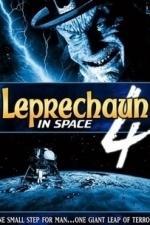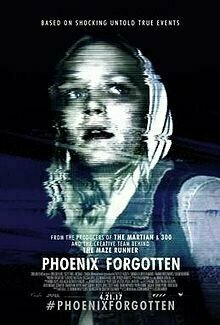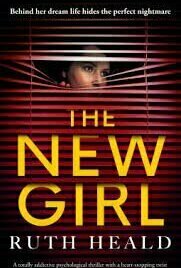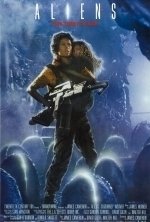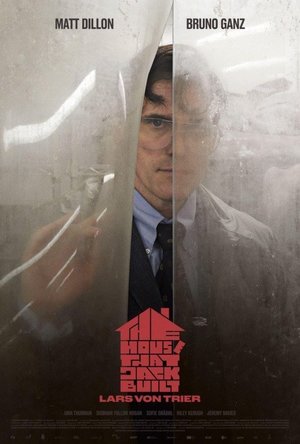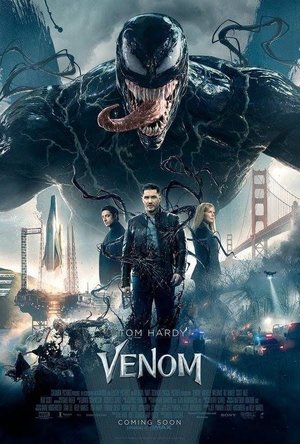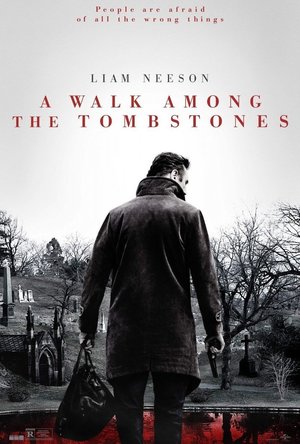Search
Search results
LeftSideCut (3776 KP) rated Leprechaun 4: In Space (1997) in Movies
Nov 15, 2020 (Updated Nov 15, 2020)
I found the first three Leprechaun films to be consistently average, but Leprechaun 4: In Space puts a brutal end to that middle of the road streak and aims straight for the gutter.
Once again, we have a sequel that has absolutely no relation to any of the previous films, is full of unlikable dicks, and has Warwick Davis doing his best to polish a turd, except this time around, there's not a whole lot he can do.
Moving the setting to space is certainly a novelty idea, and a clear indication that this film is not to be taken seriously, but the grandiose idea of spaceships require a half decent budget. The sets look cheap as hell, and the exterior CGI shots of the ship are beneath original PlayStation cutscene levels.
The characters are a bunch of misogynistic, unfunny tossers that aren't relatable in any shape or form. This movie goes in hard with the comedy angle, and granted, a few lines actually got me, but it's mostly misfire after misfire. Leprechaun himself is still just about tolerable, but honestly, even Warwick Davis looks done with this shit by now.
There is still some fun to be had with Leprechaun 4, but it's mostly a boring and lazy sequel. If you've seen the first three and are satisfied with the amount of limerick riddled material consumed, then you could probably give this one a skip and just enjoy your day instead.
Once again, we have a sequel that has absolutely no relation to any of the previous films, is full of unlikable dicks, and has Warwick Davis doing his best to polish a turd, except this time around, there's not a whole lot he can do.
Moving the setting to space is certainly a novelty idea, and a clear indication that this film is not to be taken seriously, but the grandiose idea of spaceships require a half decent budget. The sets look cheap as hell, and the exterior CGI shots of the ship are beneath original PlayStation cutscene levels.
The characters are a bunch of misogynistic, unfunny tossers that aren't relatable in any shape or form. This movie goes in hard with the comedy angle, and granted, a few lines actually got me, but it's mostly misfire after misfire. Leprechaun himself is still just about tolerable, but honestly, even Warwick Davis looks done with this shit by now.
There is still some fun to be had with Leprechaun 4, but it's mostly a boring and lazy sequel. If you've seen the first three and are satisfied with the amount of limerick riddled material consumed, then you could probably give this one a skip and just enjoy your day instead.
LoganCrews (2861 KP) rated Phoenix Forgotten (2017) in Movies
Sep 19, 2020
For what it's worth this is incredibly, incredibly convincing for what it is. The problem is that it's actually *too* convincing - this is so caught up in crafting a dead-ringer documentary (albeit admirably so) that it forgets to actually put horror movie stuff in too until the last act when this type of movie is required to spiral out of control. Essentially a beat-for-beat ripoff of all three Blair Witch movies but with aliens instead of the witch, honestly not a terrible concept and this still ends up being way better than at least one of those films anyway. Decently immersive, brisk, and engaging for the dirt cheap prices you can find this for even if it never fully sells itself on its premise. On the one hand I appreciate that this never (bar one sole time) jumps the gun by throwing in cheap jump scares before the buildup has set in (a rarity with these things) but that buildup just lasts too damn long, no excuses. Super well put together but it needed a lot less (or at least more fleshed-out) docu-stuff with that crushingly blandass lead (who conveniently is the only less-than-perfect performance in a film chock full of expert ones [particularly Chelsea Lopez, who gives a tour de force one]) and more eerie found footage stuff with the teens. Eventually turns into exactly what you'd expect. Far from that bad, but still a shame.
Red Otter (340 KP) rated Tiny Epic Zombies in Tabletop Games
Jun 24, 2019
Another in the Tiny Epic series, this one take the trope of co-op zombie survival games and turns it into a small package. The component quality is great, with sweet looking motorcycle and car that your Meeples can fit in, as well as each character Meeple able to hold weapons.
Gameplay wise, the object is for the human players to complete three randomly objectives while the zombies (either controlled by an automa or another human player) tries to eat the civilians/players while running around 8 different rooms around a central courtyard. Combat is done with either rolling in melee, or spending ammo for ranged. There's a great risk vs. reward with ranged and melee, with ranged being consistent, but spends a resource every time, while melee can potentially lose health, but can also go on a zombie killing rampage. The health system is a balance between health and ammo. If your ammo is ever less then the damage you've taken, you get eaten instantly.
I found that playing can be a little bit finicky, especially if the zombie is an automata instead of a human. The pieces are tiny (appropriate) and the gameplay can be stressful ( appropriate for a zombies coop). The missions can be a bit annoying at times and aren't equally fun or challenging.
All in all, tiny epic zombies is a serviceable co-op game that fits its theme very well and definitely looks great.
Gameplay wise, the object is for the human players to complete three randomly objectives while the zombies (either controlled by an automa or another human player) tries to eat the civilians/players while running around 8 different rooms around a central courtyard. Combat is done with either rolling in melee, or spending ammo for ranged. There's a great risk vs. reward with ranged and melee, with ranged being consistent, but spends a resource every time, while melee can potentially lose health, but can also go on a zombie killing rampage. The health system is a balance between health and ammo. If your ammo is ever less then the damage you've taken, you get eaten instantly.
I found that playing can be a little bit finicky, especially if the zombie is an automata instead of a human. The pieces are tiny (appropriate) and the gameplay can be stressful ( appropriate for a zombies coop). The missions can be a bit annoying at times and aren't equally fun or challenging.
All in all, tiny epic zombies is a serviceable co-op game that fits its theme very well and definitely looks great.
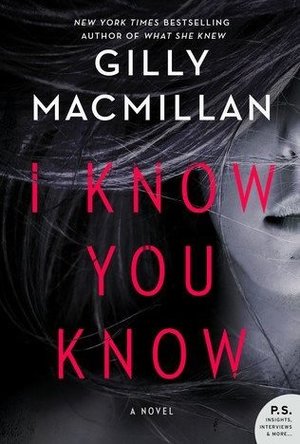
I Know You Know
Book
From New York Times bestselling author Gilly Macmillan comes this original, chilling and twisty...
Hazel (2934 KP) rated The New Girl in Books
Jan 23, 2022
After experiencing an horrific event whilst at university, Sophie has tried to re-build her life and put her past behind her. She is not happy at home and wants more from her life and when she is offered a job in London that sounds perfect and will give her the new start she is desperate for, she jumps at the chance but what's the saying "If it sounds too good to be true ... it probably is!"
Sophie is, in my opinion, a little naïve and pretty gullible. There were red flags and flashing warning signs everywhere but Sophie didn't seem to see them ... really??? A little implausible given her past, but I found the anticipation of how and when the penny would drop for her was quite engaging.
Full of interesting characters, well written and at a good pace, this is an enjoyable thriller with contemporary themes and whilst it isn't full of violence, blood or gore, there is a palpable sense of unease throughout. Some of the twists were quite obvious (to me anyway) and whilst the ending was satisfactory, the epilogue was disappointing in it's unrealistic outcome.
If you can get past the frustration of wanting to put your hands in the book and shake some sense into Sophie, this is an entertaining read and my thanks must go to Bookouture and NetGalley for my copy in return for an honest, unbiased and unedited review.
Sophie is, in my opinion, a little naïve and pretty gullible. There were red flags and flashing warning signs everywhere but Sophie didn't seem to see them ... really??? A little implausible given her past, but I found the anticipation of how and when the penny would drop for her was quite engaging.
Full of interesting characters, well written and at a good pace, this is an enjoyable thriller with contemporary themes and whilst it isn't full of violence, blood or gore, there is a palpable sense of unease throughout. Some of the twists were quite obvious (to me anyway) and whilst the ending was satisfactory, the epilogue was disappointing in it's unrealistic outcome.
If you can get past the frustration of wanting to put your hands in the book and shake some sense into Sophie, this is an entertaining read and my thanks must go to Bookouture and NetGalley for my copy in return for an honest, unbiased and unedited review.
David McK (3721 KP) rated Aliens (1986) in Movies
Jun 23, 2020 (Updated Mar 16, 2022)
The action (1 more)
Powerloader scene
James Cameron's sequel to Ridley Scott's 'Alien', set 57 years later and turning the 'haunted-house' setup of the original into a full-blown Vietnam war movie metaphor, with the sole survivor of the Nostromo, Ellen Ripley (a career best Sigourney Weaver) rescued and woken up from hypersleep by The Company, and convinced to return to the planet where she first encountered the Xenomorph, when they suddenly lose contact with the colonists on said planets.
The Extended Edition of the movie adds even more context, with the revelation that Ripley had a daughter who has since died, to the 'found family' at the heart of the narrative - especially between Newt and Ripley herself - while Bill Paxton has the honour(?) of becoming the only actor to be killed by a Predator, an Alien and a Terminator, as one of the (initially) cocksure Colonial Marines trapped behind enemy lines.
Top it off with the iconic final act (Ripley in a Powerloader Vs the Alien Queen) and some eminently quotable lines throughout:
"Game over, man! Game Over!!"
"They mostly come at night, mostly …"
"I say we take off and nuke the entire site from orbit. It's the only way to be sure"
"Get away from her, you b..."
And we have what most surely be one of the best sequels ever. Even, in my opinion, eclipsing the original.
It's just a pity it's all downhill from here ...
The Extended Edition of the movie adds even more context, with the revelation that Ripley had a daughter who has since died, to the 'found family' at the heart of the narrative - especially between Newt and Ripley herself - while Bill Paxton has the honour(?) of becoming the only actor to be killed by a Predator, an Alien and a Terminator, as one of the (initially) cocksure Colonial Marines trapped behind enemy lines.
Top it off with the iconic final act (Ripley in a Powerloader Vs the Alien Queen) and some eminently quotable lines throughout:
"Game over, man! Game Over!!"
"They mostly come at night, mostly …"
"I say we take off and nuke the entire site from orbit. It's the only way to be sure"
"Get away from her, you b..."
And we have what most surely be one of the best sequels ever. Even, in my opinion, eclipsing the original.
It's just a pity it's all downhill from here ...
Lucy Buglass (45 KP) rated The House That Jack Built (2018) in Movies
Jun 20, 2019
Danish director Lars Von Trier is no stranger to controversy. He has certainly divided film fans with some praising his work and some condemning it. The House That Jack Built is his most recent creation, causing audience members at Cannes to either walk out in disgust or stand up and applaud. This seriously mixed reception caught my interest and I wanted to find out what he’d done to generate such a response.
I’ve only seen two of his previous films; Antichrist and Melancholia, the former being a film that disturbed me so much I haven’t been able to watch it a second time. Its visceral, raw and harrowing portrayal of sex, violence, and self-mutilation is something that is a thoroughly uncomfortable and unpleasant watch. Because of Antichrist, I felt nervous yet strangely excited to see what The House That Jack Built had in store for me. I was surprised, however, to discover that it is arguably his tamest film to date, with a lot of the more graphic content happening off-screen. That doesn’t mean it doesn’t have its disturbing moments, but it was a lot less visceral than I was expecting based on its recent backlash.
The film is split into five chapters labelled ‘The Incidents’ and an epilogue, detailing some of the murders that Jack carried out over a 12-year span. Two of these incidents include child abuse and female mutilation, but is presented in a much more psychologically disturbing way rather than uncomfortable close-ups and drawn out scenes that you watch from behind your hands. The House That Jack Built spends more time tapping into Jack’s own psyche than it does the atrocities he commits, with Matt Dillon really stealing the show as the titular character.
It’s also darkly funny in places, which I certainly wasn’t expecting. Dillon’s portrayal of a psychotic killer with OCD is both terrifying and amusing. He is simultaneously charming and unhinged, which is a difficult thing to pull off. He was by far my favourite thing about the film, reminiscent of so many iconic serial killers that have fascinated the general public. The film relied heavily on Jack’s character and inner thoughts so it was great to see Dillon pull it off so brilliantly.
Much like Von Trier’s previous work, The House That Jack Built features lots of symbolism throughout the narrative. In this case, it focuses heavily on religion, art and family, with Jack being challenged on all of these as he recounts the incidents. The voice challenging him is a mystery to us until the third act, where Bruno Ganz’s character is finally revealed to us. I found this reveal to be a little jarring and strange, but not unexpected from one of his films. For me, the third act is where it started to go downhill and I lost interest, which is a real shame after the strength of the first two. Despite seeing some really great analyses online, it wasn’t enough to change my own views on the way it ended. It just seemed a little too out of place for my liking.
The visual style is interesting and combines live action with animation and still images. This feels very random but in the context of this particular film, it actually works in its favour. Both Dillon and Ganz narrate over the animation and still images, giving us monologues that act as food for thought and raise questions about morality, life, death and so on. It’s an intense film in that regard and one that you have to really concentrate on in order to enjoy properly.
The House That Jack Built is a depressing, harrowing and strange film. Its blend of sadistic violence and humour makes it a truly unique horror film that seems to appeal to a very specific audience. It’s not for the faint of heart, and Jack’s misogynistic killing sprees teamed with his nihilistic outlook on life is bound to be uncomfortable for many to witness. As a case study on a serial killer it’s a fascinating watch, but out of the three films I’ve seen, this one is unfortunately the weakest in my eyes.
https://jumpcutonline.co.uk/review-the-house-that-jack-built-2018/
I’ve only seen two of his previous films; Antichrist and Melancholia, the former being a film that disturbed me so much I haven’t been able to watch it a second time. Its visceral, raw and harrowing portrayal of sex, violence, and self-mutilation is something that is a thoroughly uncomfortable and unpleasant watch. Because of Antichrist, I felt nervous yet strangely excited to see what The House That Jack Built had in store for me. I was surprised, however, to discover that it is arguably his tamest film to date, with a lot of the more graphic content happening off-screen. That doesn’t mean it doesn’t have its disturbing moments, but it was a lot less visceral than I was expecting based on its recent backlash.
The film is split into five chapters labelled ‘The Incidents’ and an epilogue, detailing some of the murders that Jack carried out over a 12-year span. Two of these incidents include child abuse and female mutilation, but is presented in a much more psychologically disturbing way rather than uncomfortable close-ups and drawn out scenes that you watch from behind your hands. The House That Jack Built spends more time tapping into Jack’s own psyche than it does the atrocities he commits, with Matt Dillon really stealing the show as the titular character.
It’s also darkly funny in places, which I certainly wasn’t expecting. Dillon’s portrayal of a psychotic killer with OCD is both terrifying and amusing. He is simultaneously charming and unhinged, which is a difficult thing to pull off. He was by far my favourite thing about the film, reminiscent of so many iconic serial killers that have fascinated the general public. The film relied heavily on Jack’s character and inner thoughts so it was great to see Dillon pull it off so brilliantly.
Much like Von Trier’s previous work, The House That Jack Built features lots of symbolism throughout the narrative. In this case, it focuses heavily on religion, art and family, with Jack being challenged on all of these as he recounts the incidents. The voice challenging him is a mystery to us until the third act, where Bruno Ganz’s character is finally revealed to us. I found this reveal to be a little jarring and strange, but not unexpected from one of his films. For me, the third act is where it started to go downhill and I lost interest, which is a real shame after the strength of the first two. Despite seeing some really great analyses online, it wasn’t enough to change my own views on the way it ended. It just seemed a little too out of place for my liking.
The visual style is interesting and combines live action with animation and still images. This feels very random but in the context of this particular film, it actually works in its favour. Both Dillon and Ganz narrate over the animation and still images, giving us monologues that act as food for thought and raise questions about morality, life, death and so on. It’s an intense film in that regard and one that you have to really concentrate on in order to enjoy properly.
The House That Jack Built is a depressing, harrowing and strange film. Its blend of sadistic violence and humour makes it a truly unique horror film that seems to appeal to a very specific audience. It’s not for the faint of heart, and Jack’s misogynistic killing sprees teamed with his nihilistic outlook on life is bound to be uncomfortable for many to witness. As a case study on a serial killer it’s a fascinating watch, but out of the three films I’ve seen, this one is unfortunately the weakest in my eyes.
https://jumpcutonline.co.uk/review-the-house-that-jack-built-2018/
Bob Mann (459 KP) rated Venom (2018) in Movies
Sep 28, 2021
A film that leaves you in two minds.
After all the terrible reviews of this movie (“The Times” reviewer described it as “excreble” which is harsh indeed) I was steeling myself to reach for my 1* rating. I was happy to find that it wasn’t quite as bad as I was expecting it to be. Indeed parts of it were positively good fun.
The plot
Tom Hardy plays Eddie Brock, a San Franciscan investigative reporter who is engaged to hot-shot lawyer Anne Weying (Michelle WIlliams). Brock is a bit of a maverick and always tends to push things a bit far, both at work and at home. Brock targets for his latest investigation Carlton Drake (Riz Ahmed): a billionaire space pioneer (I hope the producers got WELL lawyered up!) Drake is a Bond-style megalomaniac who is intend on saving mankind by merging humans with aliens to create a symbiotic organism. Not wishing to go through all the nampy-pamby clinical trials stuff, he is doing live research on vagrants and others who “won’t be missed”… with generally negative results. Infected accidently with the symbiont called Venom Brock’s future hangs in the balance: the meld will either kill him or else a new superhero will be born. (No guessing which!)
Review
For anyone with one foot already in the Spiderverse, Eddie Brock and his alter-ego Venom have appeared before, in the convoluted and pretty poor Tobey Maguire sequel “Spider-Man 3”. In that film Eddie (played by Topher Grace) was the boyfriend of Gwen Stacey (then played by Bryce Dallas-Howard) who was similarly infected by an alien symbiote and was transformed into Venom.
This new Venom incarnation is a Sony Pictures production “with” Marvel Studios, and although featuring a Stan Lee cameo it never quite feels like a Marvel picture. Posher critics have described it as “tonally inconsistent”…. which is posh-critic language for “it’s fecking all over the place”! And they are right. It veers suddenly from high drama and sci-fi action to plodding dialogue and Deadpool-style wisecracks with clutch-smoking rapidity. As such, the film never feels like it’s decided whether it wants to be at the po-faced Captain America end of the Marvel specturn or at the wise-cracking Deadpool/GotG end.
The Turns
Tom Hardy actually gets to spend a lot of this film without a mask over his face, which is certainly a novelty! And he gives it his all acting wise which will please his army of fans. But his pairing with the Oscar-winning Michelle Williams never feels comfortable: there seems little chemistry between the pair given that they are an “item”. None of this is helped by the grindingly turgid script which gives the pair, plus Reid Scott (“Dan” from “Veep”) as the third corner in the love triangle, some truly dire dialogue to spout at each other.
An act I did like in the film was Riz Ahmed as the “really bad guy” Drake. I found Ahmed extremely annoying in “Rogue One”, but here he slides into the smarmy evil role perfectly. A better script, like a future Bond film, would have benefitted from the turn!
Woody Harrelson also turns up in a mid-credit “monkey” as the supervillain Cletus Kasady, which meant nothing to me but certainly does to comic-book fans. (By the way, there is no “monkey” at the end of the film, but there is a 6 minute clip from the upcoming “Into the Spider Verse” cartoon feature tacked onto the end – at least of this Cineworld showing – which may or may not interest you).
A technical shout-out should go to Swedish composer Ludwig Göransson (who’s previously done “Black Panther” and “Creed”): an unusual soundtrack with odd electronica, eerie electric-guitar riffs for Eddie’s theme interspersed with exciting fast-paced action beats.
Final Thoughts
I must admit that from starting with a cynical “don’t want to know” approach to the Marvel Universe, the damn thing is slowly wearing me down into being kind of intrigued with what they are going to do next. This is not a classic Marvel flick, but for me it wasn’t nearly as bad as some of the critical reviews have made it out to be. I saw this alone: and we were quite entertained.
The plot
Tom Hardy plays Eddie Brock, a San Franciscan investigative reporter who is engaged to hot-shot lawyer Anne Weying (Michelle WIlliams). Brock is a bit of a maverick and always tends to push things a bit far, both at work and at home. Brock targets for his latest investigation Carlton Drake (Riz Ahmed): a billionaire space pioneer (I hope the producers got WELL lawyered up!) Drake is a Bond-style megalomaniac who is intend on saving mankind by merging humans with aliens to create a symbiotic organism. Not wishing to go through all the nampy-pamby clinical trials stuff, he is doing live research on vagrants and others who “won’t be missed”… with generally negative results. Infected accidently with the symbiont called Venom Brock’s future hangs in the balance: the meld will either kill him or else a new superhero will be born. (No guessing which!)
Review
For anyone with one foot already in the Spiderverse, Eddie Brock and his alter-ego Venom have appeared before, in the convoluted and pretty poor Tobey Maguire sequel “Spider-Man 3”. In that film Eddie (played by Topher Grace) was the boyfriend of Gwen Stacey (then played by Bryce Dallas-Howard) who was similarly infected by an alien symbiote and was transformed into Venom.
This new Venom incarnation is a Sony Pictures production “with” Marvel Studios, and although featuring a Stan Lee cameo it never quite feels like a Marvel picture. Posher critics have described it as “tonally inconsistent”…. which is posh-critic language for “it’s fecking all over the place”! And they are right. It veers suddenly from high drama and sci-fi action to plodding dialogue and Deadpool-style wisecracks with clutch-smoking rapidity. As such, the film never feels like it’s decided whether it wants to be at the po-faced Captain America end of the Marvel specturn or at the wise-cracking Deadpool/GotG end.
The Turns
Tom Hardy actually gets to spend a lot of this film without a mask over his face, which is certainly a novelty! And he gives it his all acting wise which will please his army of fans. But his pairing with the Oscar-winning Michelle Williams never feels comfortable: there seems little chemistry between the pair given that they are an “item”. None of this is helped by the grindingly turgid script which gives the pair, plus Reid Scott (“Dan” from “Veep”) as the third corner in the love triangle, some truly dire dialogue to spout at each other.
An act I did like in the film was Riz Ahmed as the “really bad guy” Drake. I found Ahmed extremely annoying in “Rogue One”, but here he slides into the smarmy evil role perfectly. A better script, like a future Bond film, would have benefitted from the turn!
Woody Harrelson also turns up in a mid-credit “monkey” as the supervillain Cletus Kasady, which meant nothing to me but certainly does to comic-book fans. (By the way, there is no “monkey” at the end of the film, but there is a 6 minute clip from the upcoming “Into the Spider Verse” cartoon feature tacked onto the end – at least of this Cineworld showing – which may or may not interest you).
A technical shout-out should go to Swedish composer Ludwig Göransson (who’s previously done “Black Panther” and “Creed”): an unusual soundtrack with odd electronica, eerie electric-guitar riffs for Eddie’s theme interspersed with exciting fast-paced action beats.
Final Thoughts
I must admit that from starting with a cynical “don’t want to know” approach to the Marvel Universe, the damn thing is slowly wearing me down into being kind of intrigued with what they are going to do next. This is not a classic Marvel flick, but for me it wasn’t nearly as bad as some of the critical reviews have made it out to be. I saw this alone: and we were quite entertained.

How Did We Get So Dark? by Royal Blood
Album Watch
After becoming the biggest breaking British rock band with their self-titled 2014 debut album, Royal...
rock
5 Minute Movie Guy (379 KP) rated A Walk Among the Tombstones (2014) in Movies
Jun 28, 2019 (Updated Jun 28, 2019)
Liam Neeson puts in a commanding performance and is a natural as a detective. (2 more)
The film has great visual flair and creates an effectively dark and moody atmosphere.
The solid supporting cast strengthen an otherwise dull and derivative film.
The heavy graphic content of rape, mutilation, and murder is extremely off-putting. (1 more)
There's not a single likeable character to be found in the whole movie.
A Walk Among the Tombstones is unsettling but never really all that compelling. It's a decent detective movie, but your enjoyment of it may depend on how well you can handle its grimy setting and extreme violence.
After watching A Walk Among the Tombstones, I literally felt like I was going to puke. This mystery-thriller, based on Lawrence Block’s popular novel, is a gross and grisly foray into the criminal underworld in search of sadistic kidnappers. Director Scott Frank paints a portrait of a dark and twisted 1990s New York City where women are disappearing, only to later show up chopped into pieces. The film is grim without remorse or reason, and if you’re anything like me, you’ll be eager for it to end so you can wash your hands of it entirely. It stars Liam Neeson as an unlicensed private detective named Matthew Scudder who leads an investigation to find the people responsible for these horrific murders. While it may appear from the trailers to be another entry in Neeson’s growing lineup of ass-kicking action-thrillers, it’s actually far from it. A Walk Among the Tombstones plays out more like a brooding, slow-paced horror film. If you’re expecting Taken, then you’re walking right into the wrong movie.
Neeson’s character Matt Scudder is a former alcoholic and an ex-cop turned personal private investigator who works in exchange for favors. Since he’s no longer affiliated with the police, he’s an appealing person to turn to for those who need help but want to keep the cops out of the picture. When a drug dealer’s wife is kidnapped and savagely murdered, he seeks out Scudder for help. What follows is in an investigation into the murder that links up to the murder of another drug dealer’s wife. With the killers still at large, Scudder is determined to catch them before they can strike again.
Being that Scudder is working with criminals to find even worse criminals, the characters in A Walk Among the Tombstones are quite despicable. In fact, I would argue there’s not a single likeable character in the whole film. Even our protagonist Scudder is a shady person with a corrupt past. It’s hard to care about anyone here except for the poor abducted women, and yet we never get to know any of them. They’re reduced to the point where it’s hard to see them as anything more than the killers’ unlucky victims who have no chance of surviving. We follow Scudder through this twisted investigation not because we care about him, but for their sake of these women, with the hope that our detective hero can put an end to these killers’ unspeakable crimes. The film’s dreadful cast of characters give an incredibly bleak and hopeless outlook on people as a whole.
Liam Neeson gives a suitable performance as Scudder, fitting into the role of a detective quite naturally. As usual, he has a great presence and commands your attention any time he’s on screen. In A Walk Among the Tombstones, he’s not nearly the unstoppable action-hero he has been in his other recent films, but he’s still an intimidating guy you’d be wise not to mess with. He does actually have a couple tense conversations with the killers over the phone that are reminiscent of the famous scene in Taken, but certainly not as memorable.
The killers in the movie happen to be far more appalling than interesting. We don’t ever get to know much about them or their motives. They’re sick, demented people that aren’t given much more depth than being bad for the sake of being bad. However, there’s no question that they’re believably haunting and deranged. Despite their limited screen time and lack of complexity, their actors put in truly unnerving performances.
The film is well-acted throughout, with a few especially notable performances from supporting characters. Olafur Darri Olafsson is terrific as the creepy cemetery groundskeeper, and Eric Nelsen does a commendable job as the drug addict younger brother of the drug dealer who sought Scudder’s help. There’s also Brian “Astro” Bradley as a homeless teenager named TJ that Scudder befriends, who volunteers himself to be his crime-solving partner. Astro at times lightens up the moody film with his charm, and while he’s truly the only character that offers any sense of hope in the film’s gritty world, I think his character largely feels out of place as an unnecessary inclusion.
Scott Frank effectively creates a dark and sullen atmosphere in his movie that is also visually striking. He turns New York’s underbelly into a stylishly gloomy city where its seedy citizens can run rampant. He demonstrates proficiency behind the camera, building eeriness and suspense. However, he goes too far with the film’s graphic sexual content, which includes rape, torture, and mutilation. While he never gives you a very clear look at these heinous acts, he puts you right there in the moment and lets the camera linger. It’s sadistic, cruel, and very disturbing to watch. In a bizarre directorial decision, he has the 12 steps to recovery from Alcoholics Anonymous narrated over the climax of the film. Considering Scudder regularly attends AA meetings to celebrate his sobriety, I can understand why it was included, but it just doesn’t work and ends up detracting from the film’s most heightened sequences. He also disappointingly finishes the movie on a bad note with a conclusion that is drawn out far too long and which contains a weak, conventional ending that is completely forgettable.
A Walk Among the Tombstones raises more questions than it answers, but in a movie this morbid, maybe it’s best not to know. While the movie excels at being unsettling, it’s never really all that compelling. Filled with plenty of bad dialogue and characters that are hard to relate to and care about, I was yearning for this one to end so I wouldn’t have to endure any more of its vileness. Even with all the disturbing content aside, I would argue that the film is still only average at best. While I’m sure there are plenty of people with a penchant for the macabre that will enjoy the film, I am certainly not one of them and I left the theater feeling completely disturbed by what I had just watched. A Walk Among the Tombstones is a decent detective movie, but your enjoyment of the film may depend on how well you can handle its grimy setting and extreme violence. One thing that I can assure you is that I personally don’t have the stomach for it.
(This review was originally posted at 5mmg.com on 9.20.14.)
Neeson’s character Matt Scudder is a former alcoholic and an ex-cop turned personal private investigator who works in exchange for favors. Since he’s no longer affiliated with the police, he’s an appealing person to turn to for those who need help but want to keep the cops out of the picture. When a drug dealer’s wife is kidnapped and savagely murdered, he seeks out Scudder for help. What follows is in an investigation into the murder that links up to the murder of another drug dealer’s wife. With the killers still at large, Scudder is determined to catch them before they can strike again.
Being that Scudder is working with criminals to find even worse criminals, the characters in A Walk Among the Tombstones are quite despicable. In fact, I would argue there’s not a single likeable character in the whole film. Even our protagonist Scudder is a shady person with a corrupt past. It’s hard to care about anyone here except for the poor abducted women, and yet we never get to know any of them. They’re reduced to the point where it’s hard to see them as anything more than the killers’ unlucky victims who have no chance of surviving. We follow Scudder through this twisted investigation not because we care about him, but for their sake of these women, with the hope that our detective hero can put an end to these killers’ unspeakable crimes. The film’s dreadful cast of characters give an incredibly bleak and hopeless outlook on people as a whole.
Liam Neeson gives a suitable performance as Scudder, fitting into the role of a detective quite naturally. As usual, he has a great presence and commands your attention any time he’s on screen. In A Walk Among the Tombstones, he’s not nearly the unstoppable action-hero he has been in his other recent films, but he’s still an intimidating guy you’d be wise not to mess with. He does actually have a couple tense conversations with the killers over the phone that are reminiscent of the famous scene in Taken, but certainly not as memorable.
The killers in the movie happen to be far more appalling than interesting. We don’t ever get to know much about them or their motives. They’re sick, demented people that aren’t given much more depth than being bad for the sake of being bad. However, there’s no question that they’re believably haunting and deranged. Despite their limited screen time and lack of complexity, their actors put in truly unnerving performances.
The film is well-acted throughout, with a few especially notable performances from supporting characters. Olafur Darri Olafsson is terrific as the creepy cemetery groundskeeper, and Eric Nelsen does a commendable job as the drug addict younger brother of the drug dealer who sought Scudder’s help. There’s also Brian “Astro” Bradley as a homeless teenager named TJ that Scudder befriends, who volunteers himself to be his crime-solving partner. Astro at times lightens up the moody film with his charm, and while he’s truly the only character that offers any sense of hope in the film’s gritty world, I think his character largely feels out of place as an unnecessary inclusion.
Scott Frank effectively creates a dark and sullen atmosphere in his movie that is also visually striking. He turns New York’s underbelly into a stylishly gloomy city where its seedy citizens can run rampant. He demonstrates proficiency behind the camera, building eeriness and suspense. However, he goes too far with the film’s graphic sexual content, which includes rape, torture, and mutilation. While he never gives you a very clear look at these heinous acts, he puts you right there in the moment and lets the camera linger. It’s sadistic, cruel, and very disturbing to watch. In a bizarre directorial decision, he has the 12 steps to recovery from Alcoholics Anonymous narrated over the climax of the film. Considering Scudder regularly attends AA meetings to celebrate his sobriety, I can understand why it was included, but it just doesn’t work and ends up detracting from the film’s most heightened sequences. He also disappointingly finishes the movie on a bad note with a conclusion that is drawn out far too long and which contains a weak, conventional ending that is completely forgettable.
A Walk Among the Tombstones raises more questions than it answers, but in a movie this morbid, maybe it’s best not to know. While the movie excels at being unsettling, it’s never really all that compelling. Filled with plenty of bad dialogue and characters that are hard to relate to and care about, I was yearning for this one to end so I wouldn’t have to endure any more of its vileness. Even with all the disturbing content aside, I would argue that the film is still only average at best. While I’m sure there are plenty of people with a penchant for the macabre that will enjoy the film, I am certainly not one of them and I left the theater feeling completely disturbed by what I had just watched. A Walk Among the Tombstones is a decent detective movie, but your enjoyment of the film may depend on how well you can handle its grimy setting and extreme violence. One thing that I can assure you is that I personally don’t have the stomach for it.
(This review was originally posted at 5mmg.com on 9.20.14.)
